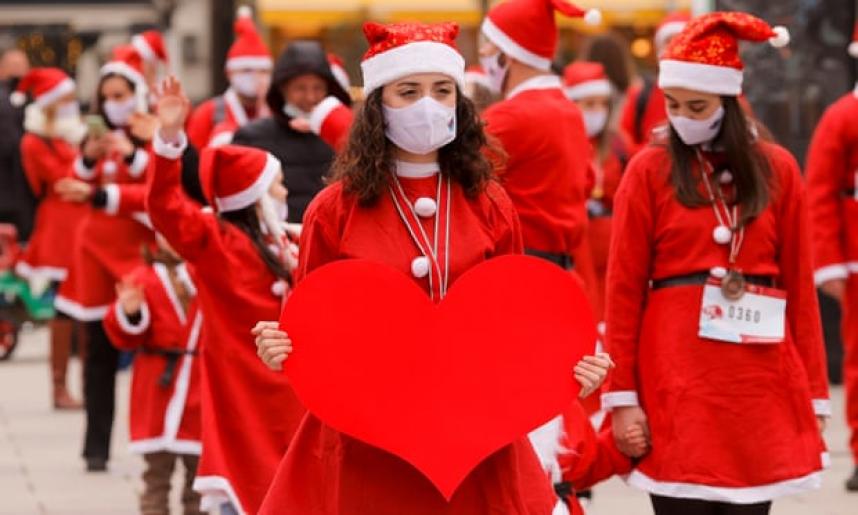
Europeans gathering for Christmas with their friends or families should try to celebrate outside or wear masks indoors in a well-ventilated space, according to an advisory issued by the World Health Organization.
The advice, posted by the UN health body’s European region on its website, covers a variety of issues relating to winter recreation and holidays, including whether to take a skiing break and seasonal celebrations.
It comes amid soul-searching across Europe over how to celebrate the holidays, including whether to continue with loosened restrictions in the UK’s devolved areas – against the recommendation of some scientists – or to introduce stricter lockdowns, as some countries are contemplating.
Noting that people were “anxious to gather together and reflect on what has been both an extraordinary and difficult 2020” the advice warned that a “massive increase in gatherings that bring together people of all ages, including families, religious groups and friends … brings a significant risk of increased Covid-19 transmission during the upcoming holiday season”.
WHO suggested that, as communities across Europe weigh whether or not to host religious processions, holiday markets and church celebrations, “postponing or reducing” public events should be considered. It also recommended that, “regardless of location”, religious services should be “held outdoors whenever possible or be limited in size and duration”.
The notice also suggested that Christmas gatherings “should be held outside if possible, and participants should wear masks and maintain physical distancing”.
It added: “If held indoors, limiting group size and ensuring good ventilation to reduce exposure risk are key. It may feel awkward to wear masks and practise physical distancing when around friends and family, but doing so contributes significantly to ensuring that everyone remains safe and healthy.
“Vulnerable people and older friends or relatives may find it very difficult to ask loved ones to stay away physically, regardless of the anxieties or concerns they may have. Consider what others may be feeling and the difficult decisions they will be facing.”